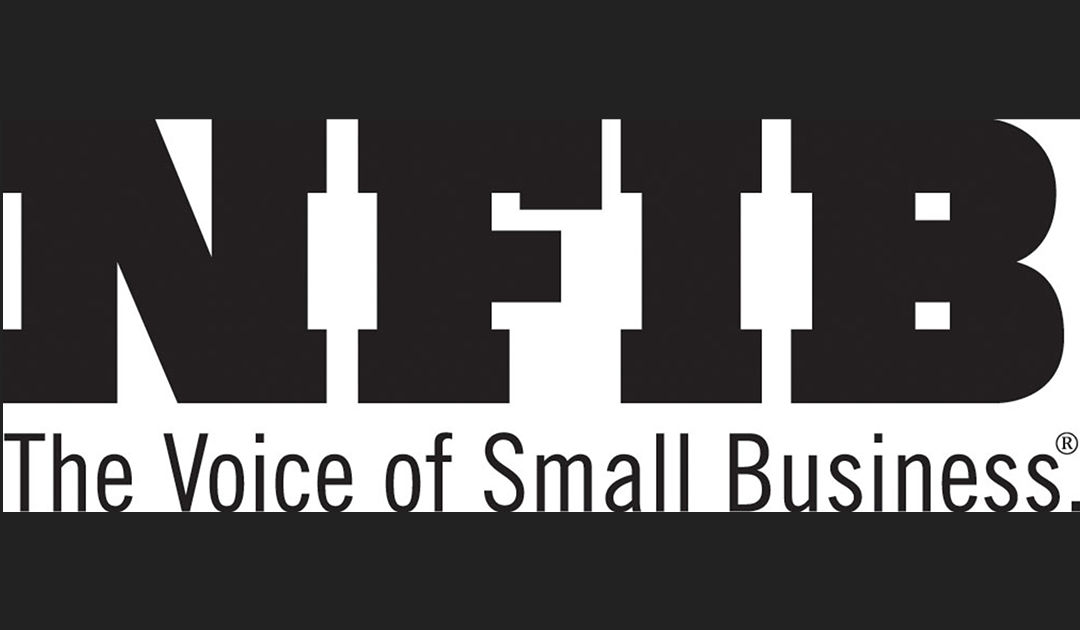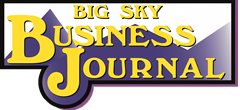As small business owners and entrepreneurs, we’re no strangers to the complexities of taxation and its impact on our bottom line. The cost of doing business in today’s economy can be steep, and equipment expenses are often a significant portion of that burden. However, relief may be on the horizon. A business equipment tax exemption, championed by the National Federation of Independent Business (NFIB), aims to alleviate some of that financial strain, freeing up resources for growth and innovation. But what does this exemption mean for your business, and how can you take advantage of it? In this article, we’ll break down the details of the NFIB’s push for a business equipment tax exemption and provide guidance on how to take action and make your voice heard.
The Business Equipment Tax Exemption: A Step in the Right Direction for Small Businesses
Understanding the Issue

The current state of the business equipment tax exemption in Montana is woefully inadequate, placing an undue burden on small businesses with equipment costs exceeding the current exemption of $1 million. This not only hampers their growth but also leads to costly compliance and paperwork burdens, ultimately hindering their ability to allocate resources towards expansion, job creation, and employee benefits.
The need for reforms is pressing, and increasing the exemption to $3 million will alleviate this costly compliance and paperwork burden on small businesses. This will enable them to redirect their resources towards growth initiatives, invest in employee development, and provide better benefits to their employees.
The impact of the tax exemption on small businesses is multifaceted. Many small business owners view it as a “tax on honesty,” where they often end up paying more in compliance costs than the actual tax owed. This is a clear indication that the current system is flawed and requires a comprehensive overhaul.

NFIB’s Efforts to Support Small Businesses
NFIB’s Advocacy
The National Federation of Independent Business (NFIB) has been an unwavering advocate for small businesses, tirelessly working to promote policies that foster their growth and success. NFIB’s commitment to supporting small businesses is evident in their relentless efforts to push for reforms that benefit their members.
NFIB has achieved numerous victories, including the creation of the 20% Small Business Deduction and the increase of the business equipment tax exemption in Montana. These successes demonstrate the organization’s unwavering dedication to its mission and its ability to drive meaningful change.
NFIB’s unique approach to membership and advocacy has enabled them to effectively represent the interests of small business owners at both the state and federal levels. Their commitment to empowering small businesses is a testament to their dedication to promoting entrepreneurship and economic growth.

The Benefits of Reforming the Business Equipment Tax Exemption
Increased Exemption, Reduced Burden
The proposed increase in the business equipment tax exemption from $1 million to $3 million will have a profound impact on small businesses. By reducing the compliance and paperwork burdens, small businesses will be able to allocate their resources more efficiently, leading to increased growth, job creation, and employee benefits.
This reform will not only benefit small businesses but also contribute to the overall economic growth of the state. By providing a more favorable business environment, the state can attract more businesses, create jobs, and stimulate economic activity.
The benefits of reforming the business equipment tax exemption are multifaceted. By reducing the compliance and paperwork burdens, small businesses will be able to focus on what matters most – growing their businesses, creating jobs, and providing better benefits to their employees.
According to NFIB’s analysis, raising the exemption to $3 million will reduce the number of businesses subject to complicated and costly compliance requirements. This will not only alleviate the burden on small businesses but also reduce the administrative costs associated with compliance.
Small businesses often end up paying more to accountants to track and pay this tax than what is legally owed. This tax is seen by many as a tax on honesty, and the reform will benefit businesses in both good and bad economic years. By reducing the compliance and paperwork burdens, small businesses will be able to redirect their resources towards growth initiatives and provide better benefits to their employees.

NFIB’s Success Stories
Recent Victories
- Creating the 20% Small Business Deduction (Section 199A)
- NFIB v. OSHA: The U.S. Supreme Court issued a stay of OSHA’s vaccine mandate following a successful SCOTUS challenge by NFIB
- NFIB helped increase the business equipment tax exemption to $1 million and reduce income taxes in Montana
NFIB’s recent victories demonstrate the organization’s commitment to supporting small businesses and promoting entrepreneurship. By advocating for policies that benefit small businesses, NFIB has been able to drive meaningful change and promote economic growth.
NFIB’s success stories are a testament to the organization’s dedication to its mission and its ability to drive meaningful change. By supporting small businesses, NFIB has been able to promote entrepreneurship, create jobs, and stimulate economic activity.

NFIB’s Effective Representation
Member Engagement
NFIB’s unique approach to membership and advocacy has enabled them to effectively represent the interests of small business owners at both the state and federal levels. Their commitment to empowering small businesses is a testament to their dedication to promoting entrepreneurship and economic growth.
NFIB handles membership differently than most organizations. Membership is based on what members feel they can invest, up to a maximum of $15,000, ensuring that no one individual can buy influence. This approach has enabled NFIB to maintain its independence and effectively represent the interests of small business owners.
Member business owners get to vote on ballots that come in their email inbox, or on the NFIB Engage app, several times a year, about state and federal issues that will affect business profits. This ensures that NFIB’s advocacy efforts are informed by the concerns and priorities of its members.
NFIB’s effective representation is a testament to the organization’s commitment to supporting small businesses and promoting entrepreneurship. By advocating for policies that benefit small businesses, NFIB has been able to drive meaningful change and promote economic growth.

Unionjournalism’s Take on NFIB’s Efforts
Supporting Small Businesses
At Unionjournalism, we believe that NFIB’s efforts to support small businesses are commendable. By advocating for policies that benefit small businesses, NFIB has been able to drive meaningful change and promote economic growth.
We commend NFIB for their commitment to empowering small businesses and promoting entrepreneurship. Their dedication to supporting small businesses is a testament to their mission and values.
We believe that NFIB’s efforts will have a positive impact on the economy and will contribute to the growth and success of small businesses. By reducing the compliance and paperwork burdens, small businesses will be able to focus on what matters most – growing their businesses, creating jobs, and providing better benefits to their employees.
Take Action on the Business Equipment Tax Exemption – NFIB

The Montana Legislature is considering Senate Bill 322, which would raise the business equipment tax exemption from $1 million to $3 million. This reform has the potential to greatly benefit small businesses in the state, and NFIB is urging its members to take action in support of the bill.

Increased Resources for Growth
Raising the exemption will free up resources for small businesses to invest in their growth, job creation, and employee benefits. This is especially important for small businesses, which often have limited resources to begin with. By reducing the burden of compliance and paperwork, small businesses will be able to allocate more resources towards core business operations.

Reduced Compliance Burden
The exemption will reduce the number of businesses subject to costly compliance requirements, allowing them to allocate resources towards core business operations. Small businesses often end up paying more to accountants to track and pay this tax than what is legally owed. This reform will reduce the compliance burden on small businesses, allowing them to focus on what matters most – running their business.
Improved Economic Outlook
The reform will benefit businesses in both good and bad economic years, providing a stable environment for growth and investment. This is especially important for small businesses, which are often more vulnerable to economic downturns. By providing a stable environment for growth and investment, this reform will help small businesses thrive, even in tough economic times.
The Role of NFIB in Advocating for Small Businesses
NFIB is dedicated to supporting and advocating for the interests of small business owners, fighting against policies that harm their growth and success. As the largest and most influential business organization in the country, NFIB has a long history of effectiveness in advocating for small businesses.
NFIB’s Mission
NFIB’s mission is to promote and protect the right of its members to own, operate, and grow their businesses. By fighting against policies that harm small businesses, NFIB is working to create a more favorable business environment for its members.
Membership Structure
NFIB’s unique membership structure allows individuals to invest up to a maximum of $15,000, ensuring that no single individual can buy influence. This structure allows NFIB to remain independent and focused on advocating for the interests of small business owners.
Effectiveness
NFIB’s advocacy efforts have been consistently rated as the most effective by major news media. With a long list of victories in court and before Congress, NFIB has proven itself to be a powerful advocate for small businesses. From creating the 20% Small Business Deduction to fighting against the OSHA vaccine mandate, NFIB has a proven track record of success.
Practical Steps to Take Action
There are several practical steps that small business owners can take to support the business equipment tax exemption and NFIB’s advocacy efforts.
Contact Your Representatives
Use NFIB’s Action Alert to contact your representatives and urge their support for SB322. This is a quick and easy way to make your voice heard and support the interests of small business owners.
Join NFIB
Become a member of NFIB to join the fight for small business owners and gain access to exclusive benefits and advocacy efforts. By joining NFIB, you will be supporting an organization that is dedicated to promoting and protecting the interests of small business owners.
Stay Informed
Stay up-to-date on NFIB’s advocacy efforts and the latest news on small business issues. By staying informed, you will be better equipped to make your voice heard and support the interests of small business owners.
Conclusion
In conclusion, the fight for a business equipment tax exemption, as championed by the National Federation of Independent Business (NFIB), is a pivotal moment for small business owners and entrepreneurs across the nation. As discussed in this article, the current tax laws place an undue burden on businesses, stifling growth and innovation by forcing them to pay taxes on the very equipment necessary for their operations. The NFIB’s efforts to exempt business equipment from taxation would go a long way in alleviating this burden, freeing up capital for businesses to reinvest in their operations and drive economic growth.
The significance of this issue cannot be overstated. By exempting business equipment from taxation, policymakers can send a strong signal that they are committed to supporting small businesses and fostering a competitive business environment. This, in turn, can have far-reaching implications for the economy, from creating jobs to driving innovation and increasing productivity. As the nation continues to grapple with the challenges of a rapidly evolving economy, the importance of providing relief to small businesses cannot be overstated.
As the NFIB continues to push for a business equipment tax exemption, it is imperative that policymakers and stakeholders take note of the long-term implications of this issue. By supporting small businesses and providing them with the necessary tools to succeed, we can create a more vibrant and dynamic economy that benefits everyone. As the NFIB’s advocacy efforts gain momentum, one thing is clear: it is time for policymakers to take action and give small businesses the relief they so desperately need. The future of America’s economic prosperity depends on it – will policymakers answer the call?
